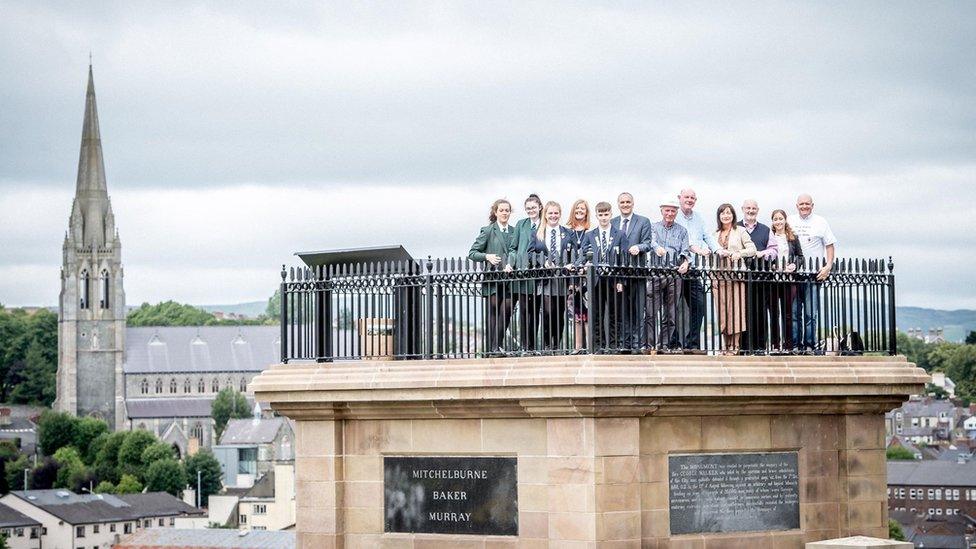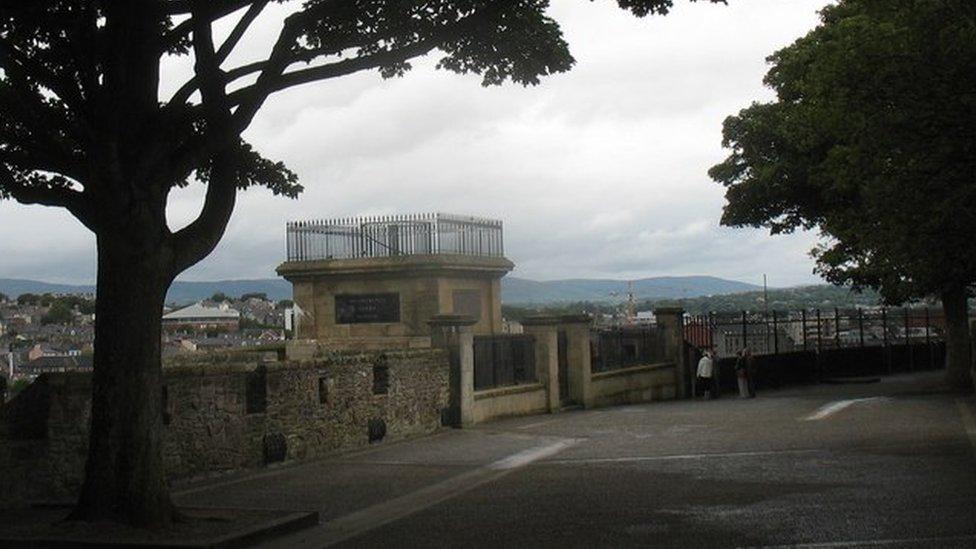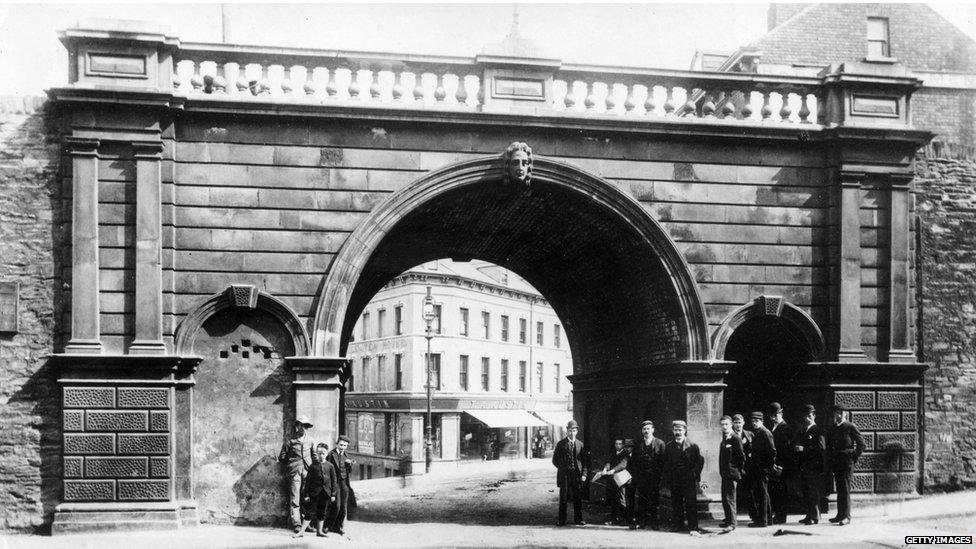Derry Walls: Historic monument to reopen to public
- Published

Teachers and students from Lisneal College and St Cecilia’s College were given a special preview
One of Londonderry's most historic monuments is to reopen to the public following repair work and the removal of graffiti.
The Royal Bastion and Plinth is part of the city's historic walls and will open on time for the 400-year anniversary celebrations, external this year.
The Department for Communities has spent £155,000 on adapting the plinth for educational purposes.
Derry's famous walls were built between 1613 and 1619.
They were used as defences for early 17th Century settlers from England and Scotland.
By 1619, 92 houses including a school house had been built within the walls, housing 102 families. Many of those inhabitants were part-time farmers.

The monument has been daubed with paint and graffiti in the past
Recent work on the plinth involved the creation of a new access point, an internal staircase and ornate railings.
Conservation work to the historic fabric of the bastion walls was also carried out.

Derry's Walls

Derry was the first planned city in Ireland and the last walled city to be built in Europe
The walls are Northern Ireland's largest state monument
While the structure was commissioned in 1613, the build did not begin until 1614 and ended in 1619
In 2013, thousands of people took part in a Mexican wave along the walls to mark 400 years since they were commissioned

Michaela Boyle, mayor of Derry City and Strabane District Council, said the project allowed "access for those to enjoy unique views of the city".
"It will enhance the public realm space in the area and assist in improving access to some of Ireland's most iconic ramparts," she added.